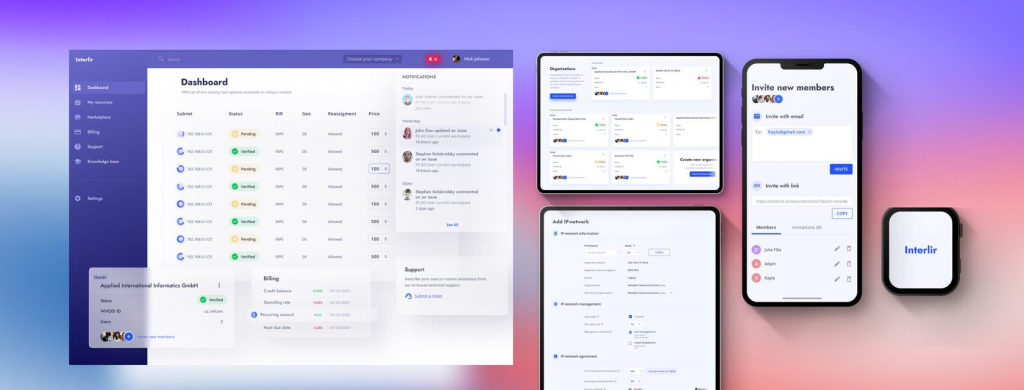Efficient utilization of the existing IPv4 address space is one potential approach to promote the advancement of the IT industry. The growth of information technology and internet-related devices has resulted in a scarcity of IP addresses using the reliable, but outdated, IPv4 protocol. The adoption of a new protocol, IPv6, is delayed due to numerous technical and organizational challenges. However, the InterLIR Marketplace offers a solution where you can purchase IPv4 space at advantageous prices and leverage it to enhance your business operations.

The shortage of IPv4 addresses is due to the limitations of the protocol’s 32-bit code, which can only accommodate 4.3 billion number combinations, a number that is insufficient for the rapidly expanding information technology sector. Various solutions have been proposed to address this problem, including the adoption of the IPv6 protocol or NAT (network address translation) technology. However, these solutions are not without their drawbacks, such as security concerns and the need for expensive equipment upgrades. In our opinion, there are alternative ways to prolong the lifespan of the IPv4 protocol and related equipment without having to invest in costly upgrades or dispose of existing equipment. The focus should be on conserving available IPv4 address space to facilitate a gradual transition to the IPv6 address space. Despite the perception of a global shortage of IPv4 addresses, the InterLIR Marketplace offers favorable terms for the leasing/purchase of IPv4 space.
Over 30% of the existing IPv4 address space is unused, and another 30% is in a pseudo-used state in Europe, creating a shortage of IPv4 addresses for some companies while others have excess free addresses. This is because when the concept of the Internet was first introduced, the address space was allocated to any organization that requested it, irrespective of their current needs. Consequently, many blocks were once given to those who never planned to use them, resulting in 1.3-1.4 billion unused addresses worldwide. In Germany, there are about 40 million unused IP addresses managed by LIRs that do not allocate them. Additionally, a significant portion of the remaining 70% of the address space is not optimally used due to careless allocation. While there is a shortage of IPv4 addresses on paper, in reality, there is no shortage; organizations are inefficiently using their IPv4 resources. To solve this issue, it is crucial to reach out to network owners who do not use their networks and use lean approaches. Unused IP addresses can easily be turned into money by selling or renting them out, and trading platforms like Marketplace can effectively facilitate the process.